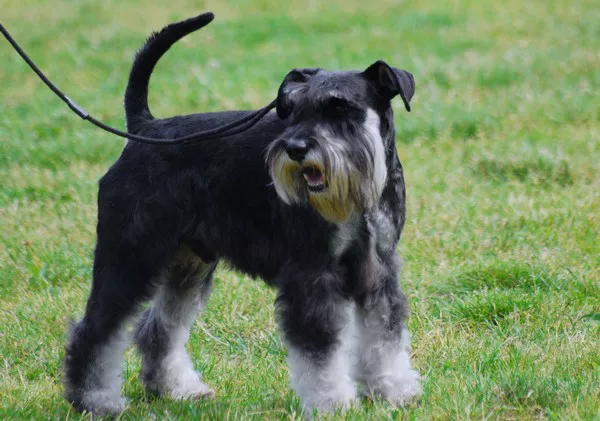In the world of dog breeds, the term “teacup schnauzer” has gained attention and curiosity among dog enthusiasts. But what exactly is a teacup schnauzer? Are they a unique breed, a miniature version of the beloved schnauzer, or simply a marketing ploy? In this article, we’ll delve into the world of teacup schnauzers, exploring the origins of the term, their characteristics, concerns, and the responsible ownership of these petite pups.
Demystifying the Term “Teacup Schnauzer”
Origins of the Term: The term “teacup schnauzer” is not officially recognized by major kennel clubs, such as the American Kennel Club (AKC). It’s important to understand that this term is not associated with a distinct breed; rather, it is used to describe exceptionally small schnauzers.
Misconceptions and Marketing: The term “teacup” often evokes images of tiny dogs that can fit into a teacup. However, this is largely a marketing strategy used by some breeders to attract buyers. Genuine and responsible breeders prioritize the health and well-being of the dogs rather than emphasizing extreme smallness.
Characteristics of Teacup Schnauzers
Size: Teacup schnauzers are considerably smaller than the standard schnauzer. They may weigh around 3 to 7 pounds and stand around 7 to 11 inches tall at the shoulder. Their small size often makes them appealing to people living in apartments or smaller spaces.
Appearance: Teacup schnauzers typically resemble their larger counterparts in terms of coat color and texture. They often have the same distinctive bushy eyebrows, beard, and wiry double coat that require regular grooming.
Personality Traits: These petite pups usually possess the same lively and spirited personality traits as standard schnauzers. They can be loyal, intelligent, and alert companions, making them suitable for families and individuals alike.
Health Considerations for Teacup Schnauzers
Health Risks: Selective breeding for extremely small size can lead to serious health issues in teacup schnauzers. They might be more prone to fragile bones, dental problems, respiratory issues, and organ complications due to their small size.
Lifespan: Teacup schnauzers may have a shorter lifespan compared to standard-sized schnauzers due to their potential health vulnerabilities. Responsible breeders focus on maintaining the overall health of the breed rather than prioritizing extreme size.
Responsible Ownership and Care
Reputable Breeders: If you’re considering bringing a teacup schnauzer into your home, it’s crucial to source from reputable breeders. These breeders prioritize the health and well-being of their dogs and avoid breeding for extreme size.
Regular Veterinary Care: Teacup schnauzers require consistent veterinary check-ups to monitor their health. Regular dental care, appropriate nutrition, and vaccinations are essential for their overall well-being.
Grooming: Like standard schnauzers, teacup schnauzers need regular grooming to maintain their coat’s health and prevent matting. Regular brushing, ear cleaning, and nail trimming are necessary.
Physical Activity: Despite their small size, teacup schnauzers need daily exercise to keep them mentally and physically stimulated. Short walks, interactive play sessions, and mental enrichment activities are beneficial.
The difference between a teacup schnauzer and a mini schnauzer :
Miniature Schnauzer:
Size: Miniature schnauzers are a recognized breed with specific size standards. According to the American Kennel Club (AKC), miniature schnauzers should ideally stand between 12 to 14 inches tall at the shoulder and weigh between 11 to 20 pounds.
Breed Recognition: Miniature schnauzers are an officially recognized breed by kennel clubs. They have a distinct appearance with bushy eyebrows, a beard, and a wiry double coat that requires regular grooming.
Temperament: Miniature schnauzers are known for their lively and spirited personality. They are intelligent, loyal, and often make excellent family companions.
Health: Reputable breeders focus on maintaining the health and well-being of miniature schnauzers. While they may have typical health concerns associated with their breed, they are generally bred for overall health and adherence to breed standards.
Teacup Schnauzer:
Size: The term “teacup schnauzer” is not a recognized breed or standard. It is often used to describe schnauzers that are exceptionally small, sometimes weighing as little as 3 to 7 pounds and standing around 7 to 11 inches tall at the shoulder.
Breed Recognition: The term “teacup” is not recognized by official kennel clubs and is not associated with a separate breed. It’s more of a marketing term used by some breeders to describe very small dogs.
Breeding Practices: The term “teacup” often raises concerns about breeding practices that prioritize extreme size over the health and well-being of the dogs. Breeding for very small size can lead to health issues such as fragile bones, dental problems, respiratory difficulties, and organ complications.
Conclusion
In conclusion, the term “teacup schnauzer” doesn’t denote a distinct breed but rather describes exceptionally small schnauzers. While these petite pups can be charming companions, potential owners should be aware of the health risks associated with extreme size. Responsible ownership involves supporting reputable breeders, prioritizing the well-being of the dog over size, and providing proper care for their unique needs.


